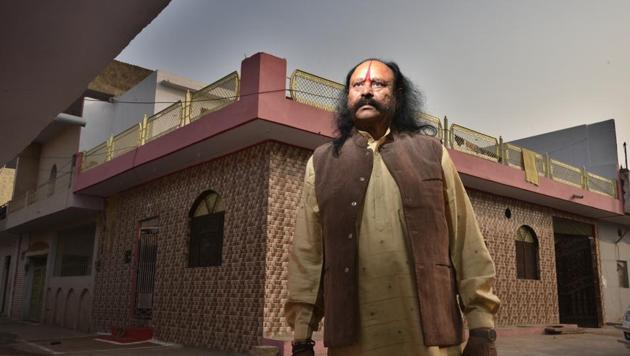Discussing murder, abduction over chai-pakoda: My experience of meeting former Chambal dacoits
It is difficult to feel scared of these former bandits when they look and behave like grandfathers.
“Weren’t you scared?” my colleagues have been asking me since I have returned from my four-day trip to meet some of the former dacoits of the Chambal area. I don’t have an answer. How does one describe the experience of chatting, laughing and sharing food with someone who admits to having committed murder? And not one or two at that, but hundreds?

Once upon a time, the ravines of Chambal – or beehad as it is locally know – were notorious for the armed gangs of dacoits it harboured. But the last big police encounter with a dreaded dacoit – someone who could instil fear in the public was 10 years back, in 2007, of Rambabu Gadariya. Gadariya had been killed in the encounter. Smaller encounters have happened since, one as recent as last year. But Umesh Joga, IG, Chambal Zone, Madhya Pradesh, tells me the ravines are free of its dreaded human inhabitants. There have also been many surrenders over the years.
What is life like for these former bandits – the ones who voluntarily laid down arms, have served prison time and been released? Have they managed to integrate back in society, or are they still some kind of social outcast, feared and avoided by their neighbours. It was to find the answer to this question that I had made the trip to Chambal. The area spreads across the three states of Madhya Pradesh, Uttar Pradesh and Rajasthan.
In a village in Madhya Pradesh’s Bhind district, Munna Singh, a 70-year-old former dacoit is waiting for me with his family and friends. Thin to the point of frailty, Munna Singh has a bright red tika on his forehead and wears a turban that is bigger than his head. He insists that his grand-nephews and nieces - Munna Singh never married - touch my feet and fusses over me, trying to get me to sample the pakodas, tea and chaas that his family has set before me. He takes me to visit the local school, where he says he often drops in to spend time with the children. The teacher stands up respectfully as he enters. Munna Singh, evades answering how many murders or abductions he had had a hand in during his dacoit days, but admits that they were many.
In another village in Morena – also a district in Madhya Pradesh, 80-year-old Mohar Singh is more open about the crimes he committed – he had 400 cases of murder registered against him when he surrendered in 1972, he says. Dressed in a dhoti, kurta and Nehru jacket, he is a picture of the respected village elder, but he still handles the rifle that someone hands him, with ease. Most of the former dacoits have received license for one rifle - for self protection. “Should I fire and show you?” he asks, with a laugh. Then extending the rifle towards me he asks me to try my hand at it.
My mind told me I should be bothered, even scared, may be. But it was difficult to feel fear when in the next breath he asks me whether I have had breakfast. At the Gandhi Ashram in Morena, where the former bandits spin yarn, make honey and grow plants, Mohar Singh, gets me lemons grown in their orchard and would have got someone to make me lemonade if I had given him half a chance.
Their concerns today are the common concerns of the elderly – job for their family members and safety for their children – of course, in their case safety becomes an issue given the number of enemies they made as bandits. While most of the former bandits I met – Malkhan Singh, Hari Singh Parmar, Bahadur Singh, Balwant Singh Tomar - gave disputes (often within the family) or harassment (by influential or rich people in the village or the panchayat and the authorities), as the reason for becoming dacoits – Tomar, nephew of soldier and athlete- turned bandit Paan Singh Tomar, admitted that once they became dacoits, they were completely nirmohi – or without emotions.
The years in the jungle have given them an edginess, even as they sit in the comfort of their living rooms. But it is difficult to imagine their exploits or be afraid of them, when they look and behave as grandfathers. Much easier to imagine those as some kind of disturbing fire-side stories.
As for their social standing – the love and respect they command from their neighbours and families is difficult to explain. The bandits – or baaghis (rebels) – as they call themselves, give a reason for it. To know what’s that reason, read their story here.





